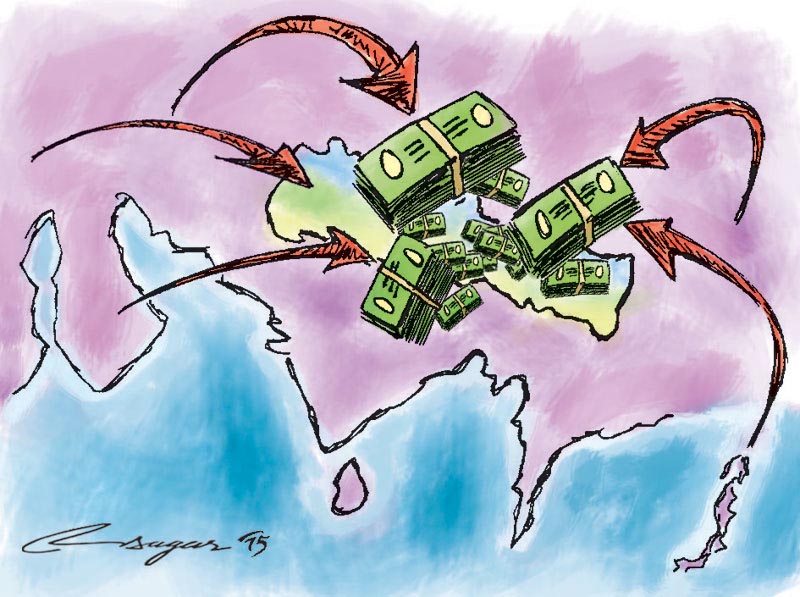Remittance payments to be delayed
Kathmandu, August 20
Remittance recipients in the country will not get payment in real time like in the past as Nepal Rastra Bank (NRB) — the central regulatory and monetary authority — has instructed banks and financial institutions (BFIs) and remittance companies to release the payment to the recipients only after the money is actually transferred to Nepal.
Following the dispute between Malaysia-based Max Money and Himalayan Bank regarding the transfer of remittance from Malaysia, the central bank has issued a new circular which came into effect from August 17, according to Executive Director of NRB’s Foreign Exchange Management Division, Bhisma Raj Dhungana.
Earlier, BFIs and remit companies in Nepal used to release payments from their network and agents of the country in real time once their partner remit company or banks abroad placed release order based on the remittance money they received there.
“The new central bank rule could give birth to unintended consequences, like thriving of informal channels like hundi,” said economists.
They opined that the central bank should have focused on the regulatory investigation of the fraud by corresponding with the central bank of Malaysia rather than introducing such a ‘regressive’ provision that would only make the remittance recipients suffer.
The dispute between Max Money and Himalayan Bank is related to Rs 180 million that the bank claims the company is yet to transfer. The company, however, alleges that the bank is making fake claims by forging payment receipts. The bank has already paid to the remittance recipients based on the release order issued by partner remit company — Max Money.
Prior to the central bank’s recent direction, almost all the remittance companies and the BFIs used to release payments through their agents across the country in real time based on the release order. The BFIs and remittance companies have said that the real-time payment system to the remittance recipients has attracted the remitters to remit through a formal channel, where they do not face any risk.
They fear that the new rule will encourage remitters who need to send money home urgently to resort to the informal channels, which will adversely hit the flow of foreign exchange in the country.






